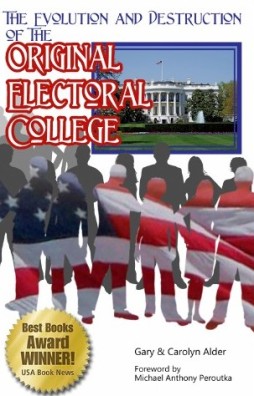Religion, morality and knowledge in the science of government are the pillars of human happiness and political prosperity.
Key 6 Analysis
The teaching of the clergy provided the moral stability of the society. The function of the clergy has always been to transmit God’s truths to man. These truths relate to all areas of life not just to church specific doctrines and forms of worship. Seeking truth was recognized as the duty of the religious realm with the primary responsibility resting upon the family. The purpose of education, is to seek truth in all areas of life, including education about the proper role of government. The local church was most often also the school house. The clergy would warn of dangerous trends and were often the spokesmen for preserving freedom. In this environment, the society, the body politic, reaches its highest level of political prosperity.
The Founders believed that encouraging religious study and involvement of the various religious denominations in their communities, was in the best interest of promoting virtue and moral stability of the society as a whole. As was stated in the Northwest Ordinance of 1787, Article 3:
“Religion, morality and knowledge being necessary for good government and the happiness of mankind, schools will be forever encouraged.”
This quote leaves little room to doubt that education was considered a function of the religious realm. The Northwest Ordinance was also confirmed again in 1789 by the first Congress under the new Constitution. From this statute, we can see that those in government who were designing the laws, felt that religious and moral standards were necessary to good government and society.
The Northwest Ordinance is considered part of America’s “Organic Law”. This is a clear endorsement of the value of religion in our society, beginning in schools.
The “religion of America” was to be taught in schools along with morality and knowledge. The “religion of America” could be summed up by this creed of Benjamin Franklin:
“Here is my creed: I believe in one God, the Creator of the universe. That he governs it by his providence. That he ought to be worshipped. That the most acceptable service we render to him is in doing good to his other children. That the soul of man is immortal, and will be treated with justice in another life respecting its conduct in this. These I take to be the fundamental points in all sound religion.”
Dr. W. Cleon Skousen summarizes these beliefs as follows:
1. There exists a Creator who made all things, and mankind should recognize and worship Him.
2. The Creator has revealed a moral code of behavior for happy living which distinguishes right from wrong.
3. The Creator holds mankind responsible for the way they treat each other.
4. All mankind live beyond this life.
5. In the next life mankind are judged for their conduct in this one.
Dr. Skousen states “All five of these tenets run through practically all of the Founders’ writings.” Dr. W. Cleon Skousen The Five Thousand Year Leap pp. 77-78
The Founders understood that the only way a Republic could survive and prosper, would be to depend on the virtue of the people. This was one of the principles emphasized by George Washington in his farewell address:
“Of all the dispositions and habits which lead to political prosperity, religion and morality are indispensable supports. In vain would that man claim the tribute of patriotism, who should labor to subvert these great Pillars of human happiness, these firmest props of the duties of Men and citizens (religion & morality). The mere Politician, equally with the pious man ought to respect and to cherish them (religion & morality). A volume could not trace all their connections (religion & morality) with private and public felicity. Let it simply be asked, where is the security for property, for reputation, for life, if the sense of religious obligation desert the oaths which are the instruments of investigation in Courts of Justice? And let us with caution indulge the supposition that morality can be maintained without religion. Whatever may be conceded to the influence of refined education on minds of peculiar (one’s own property, in exclusion of others, such as a writer’s peculiar style) structure (manner of building, organization, construction), reason and experience both forbid us to expect that national morality can prevail in exclusion of religious principle.
Tis substantially true, that virtue or morality is a necessary spring of popular government. The rule indeed (virtue/morality) extends with more or less force to every species of free Government. Who that is a sincere friend to it (free government or political prosperity), can look with indifference upon attempts to shake the foundation of the fabric.” George Washington Farewell Address (Published Sept. 19th 1796 in Claypole’s American Daily Advertiser.)
John Adams, the second president of the United States aslo confimed this principle when addressing the military.
“We have no government armed with power capable of contending with human passions unbridled by morality and religion. Avarice, ambition, revenge, or gallantry, would break the strongest cords of our Constitution as a whale goes through a net. Our Constitution was made only for a moral and religious people. It is wholly inadequate to the government of any other.”
Pres. John Adams Oct. 11, 1798 stated in address to the military.
Quotes
“Blessed is the nation whose God is the Lord.” Psalms 33:12
* * *
“[I]t is Religion and Morality alone, which can establish the Principles upon which Freedom can securely stand….The only foundation of a free Constitution, is pure Virtue, and if this cannot be inspired into our People, in a great Measure, than they have it now, They may change their Rulers, and the forms of Government, but they will not obtain a lasting Liberty.” John Adams, letter to Zabdiel Adams, 21 June 1776
* * *
A general dissolution of the principles and manners will more surely overthrow the liberties of America than the whole force of the common enemy…. While the people are virtuous they cannot be subdued; but once they lose their virtue, they will be ready to surrender their liberties to the first external or internal invader…. If virtue and knowledge are diffused among the people, they will never be enslaved. This will be their great security. Samuel Adams
* * *
“A Bible and a newspaper in every house, a good school in every district – all studied and appreciated as they merit – are the principle support of virtue, morality, and civil liberty.” Benjamin Franklin
* * *
The propitious smiles of Heaven can never be expected on a nation that disregards the eternal rules of order and right which Heaven itself has ordained. Pres. George Washington Inaugural Address April 30, 1789
* * *
“I never … believed there was one code of morality for a public and another for a private man. Thomas Jefferson In a letter to Don Valentine de Feronda, 1809
* * *
If ever a time should come, when vain and aspiring men shall possess the highest seats in Government, our country will stand in need of its experienced patriots to prevent its ruin. Samuel Adams
* * *
“Almighty and eternal Lord God, the great Creator of heaven and earth, and the God and Father of our Lord Jesus Christ; look down from heaven in pity and compassion upon me Thy servant, who humbly prostrate myself before Thee.”
“To the distinguished character of a Patriot, it should be our highest glory to add the more distinguished character of a Christian.” George Washington
* * *
Of all the dispositions and habits which lead to political prosperity, religion and morality are indispensable supports. In vain would that man claim the tribute of patriotism, who should labor to subvert these great Pillars of human happiness, these firmest props of the duties of Men and citizens (religion & morality). The mere Politician, equally with the pious man ought to respect and to cherish them (religion & morality). A volume could not trace all their connections (religion & morality) with private and public felicity. Let it simply be asked, where is the security for property, for reputation, for life, if the sense of religious obligation desert the oaths which are the instruments of investigation in Courts of Justice? And let us with caution indulge the supposition that morality can be maintained without religion. Whatever may be conceded to the influence of refined education on minds of peculiar (one’s own property, in exclusion of others, such as a writer’s peculiar style) structure (manner of building, organization, construction), reason and experience both forbid us to expect that national morality can prevail in exclusion of religious principle.
‘Tis substantially true, that virtue or morality is a necessary spring of popular government. The rule indeed (virtue/morality) extends with more or less force to every species of free Government. Who that is a sincere friend to it (free government or political prosperity), can look with indifference upon attempts to shake the foundation of the fabric.” George Washington Farewell Address (Published Sept. 19th 1796 in Claypole’s American Daily Advertiser.)
* * *
We have no government armed with power capable of contending with human passions unbridled by morality and religion. Avarice, ambition, revenge, or gallantry, would break the strongest cords of our Constitution as a whale goes through a net. Our Constitution was made only for a moral and religious people. It is wholly inadequate to the government of any other. Pres. John Adams Oct. 11, 1798 stated in address to the military.
* * *
If men, through fear, fraud, or mistake, should in terms renounce or give up any natural right, the eternal law of reason and the grand end of society would absolutely vacate such renunciation. The right to freedom being the gift of Almighty God, it is not in the power of man to alienate this gift and voluntarily become a slave. Samuel Adams
* * *
It is the duty of all nations to acknowledge the Providence of Almighty God, to obey His will, to be grateful for His benefits, and humbly to implore His protection and favor… Pres. George Washington Oct. 3, 1789 Proclamation of a National Day of Prayer and Thanksgiving.
* * *
Religion [is] the basis and Foundation of Government. James Madison
* * *
“Our citizens should early understand that the genuine source of correct republican principles is the Bible,…particularly the New Testament, or the Christian religion.”
“The education of youth should be watched with the most scrupulous attention. The education of youth lays the foundations on which both law and gospel rest.”
“Discipline our youth in early life in sound maxims of moral, political, and religious duties.” Noah Webster (Known as “School master of the Nation” published 1st American Dictionary, 1st time English given standardized spelling.)
* * *
A primary object…should be the education of our youth in the science of government. In a republic, what species of knowledge can be equally important? and what duty more pressing…than…communicating it to those who are to be the future guardians of the liberties of the country?” George Washington 1796 The writings of George Washington, by John C. Fitzpatrick, GPO, 1931-44 Vol. 35:316
* * *


